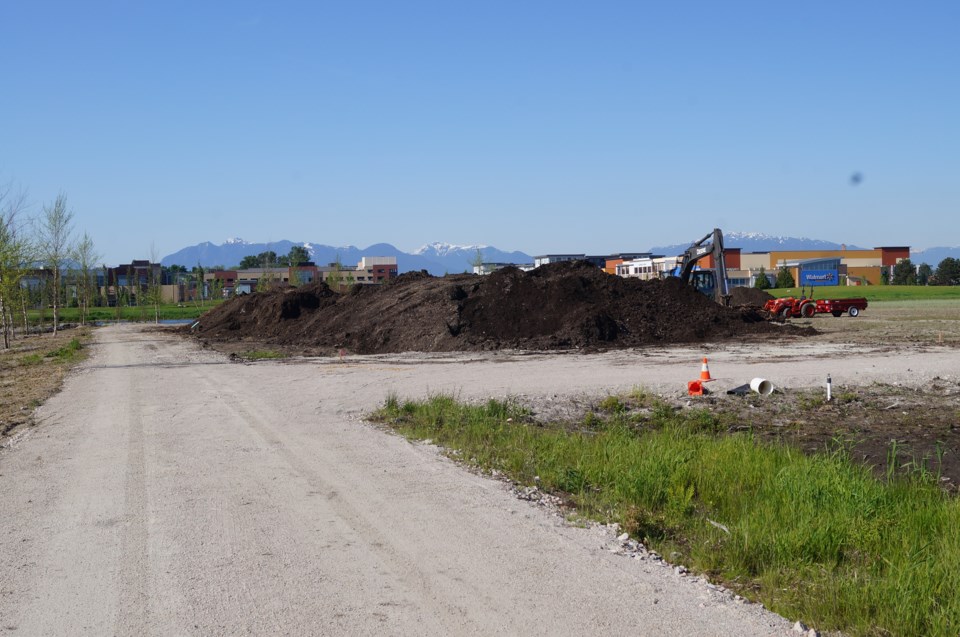The City of Richmond could earn over one million dollars by allowing uncontaminated soil and fill to be dumped on the Garden City Lands by the end of the year.
According to planning reports to city council, the city has already earned $450,000 from contractors who specialize in soil and fill deposits from the likes of construction sites.
The soil and fill is needed to prepare a 20-acre research and education farm leased to Kwantlen Polytechnic University. One of the concerns of farming on the land has been the amount of peat, which is not ideal for crops. As such, the dumps have been approved by the Agricultural Land Commission. The imported material will also be mixed with a small amount of imported peat, compost and manure and placed on top of the existing peat.
Coun. Harold Steves says he is keeping an eye on the process and has raised concerns about contaminated fill and soil coming into the park and nature reserve. For instance, some material is coming from Sea Island, nearby Vancouver International Airport. Similar concerns were raised by the ALC after dumping commenced. However, city staff have assured tests are done to ensure the soil is clean. As a result of the concerns, on-site testing will be done to ensure cleanliness and the absence of invasive species.
The soil amendments are being conducted by McTavish Consulting, an environmental firm. Between last year and the end of this year, 57,000 cubic metres of soil and fill will be imported. Up to $1.2 million could be earned.
The city has spent millions of dollars to date ($6.4 million) preparing the Garden City Lands for public use. Among the visible highlights are: a grassy mound to the; a new irrigation pond; and a 2.9-kilometre perimeter walking trail. Less visible work includes water management testing and drainage upgrades to ensure half of the 137-acre parcel remains a healthy native peat bog and the other half can be farmed and used for park space.
More money will eventually be spent on a community barn and trail upgrades. And the university (KPU Farm School Program) intends to plant an orchard, to complement 700 trees planted around the trail by the city.
According to the city, “while the Lands is designated a citywide park, because it is located in a high-density neighbourhood, it is envisioned to serve primarily as an agriculturally productive space within the local community.”
The source of much public consultation, the Lands nearly became condominiums and a trade centre just under a decade ago, but public protests kept it in the Agricultural Land Reserve after the city purchased it from the Musqueam First Nation and Canada Land Company for $60 million.



